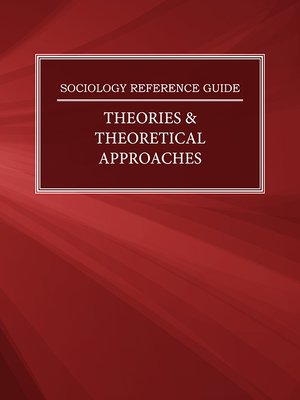
Sign up to save your library
With an OverDrive account, you can save your favorite libraries for at-a-glance information about availability. Find out more about OverDrive accounts.
Find this title in Libby, the library reading app by OverDrive.



Search for a digital library with this title
Title found at these libraries:
| Library Name | Distance |
|---|---|
| Loading... |
This volume begins with an essay by Jennifer Kretchmar that provides an overview of conflict theory and consensus
theory. According to the author, “even though consensus and conflict theories are often presented as opposing viewpoints,
many theorists believe they are complementary.” Katherine Walker offers insight on the Frankfurt School and
its contributions to critical theory. She also describes the characteristics of the members of the school and touches on
the modern uses of critical theory. Kimberly Cox continues the discussion of sociological theory with an analysis of
feminist theory. Throughout the essay, Cox explores feminism’s early themes, its contribution to sociology, and the
areas of feminist theory that pose the most resistance. This collection also offers a discussion of postcolonial theory; in
her exploration, Samantha Christiansen “traces the historical trajectory of postcolonial theory from prior approaches
to social theory and positions postcolonial theory as an outgrowth of Marxism and postmodernism.” P.D. Casteel follows
with a description of postmodernism’s general themes, its critique of modernity, and how these critiques have
influenced sociological theory. Kretchmar’s “Social Darwinism” attempts to define the recognizable term that often
has little to do with the theory of evolution and is instead more focused with Charles Darwin’s ideas and social, scientific,
and political methods. Maureen McMahon moves on to Auguste Comte’s social positivism, which relies on
empirical data and the belief that only what can be observed can be considered truth.







